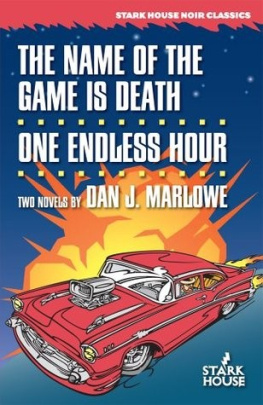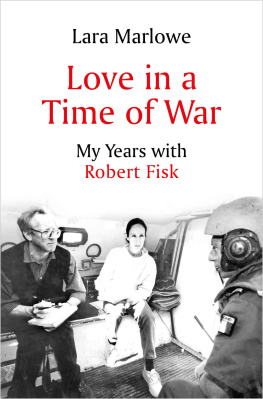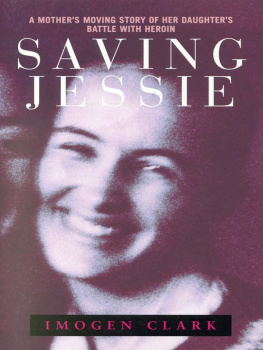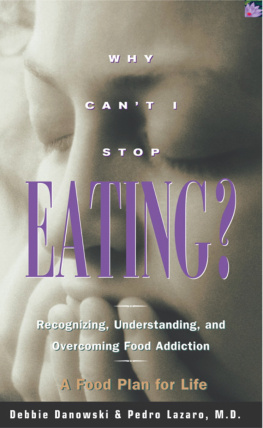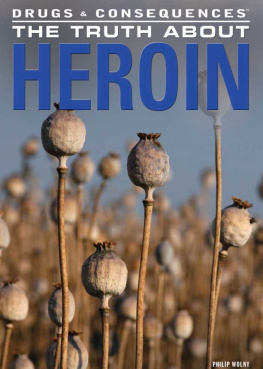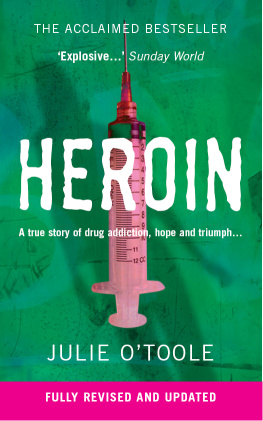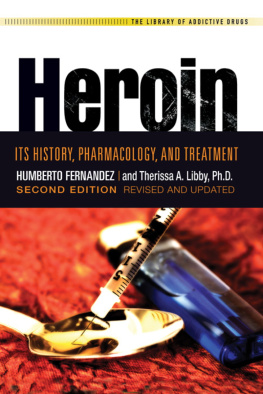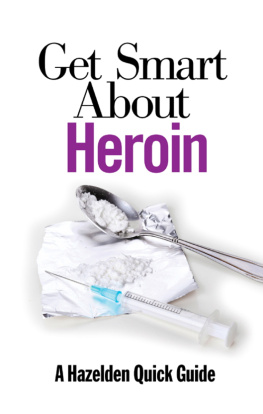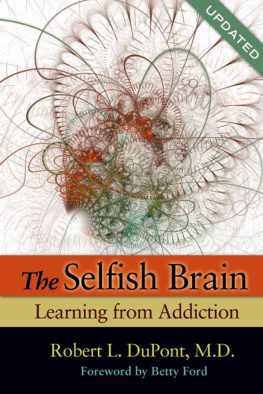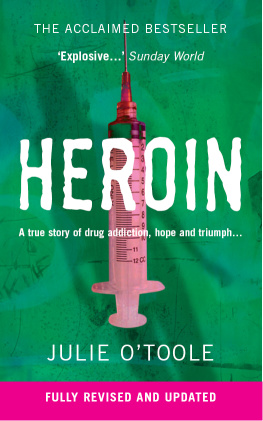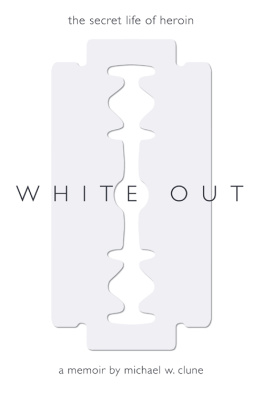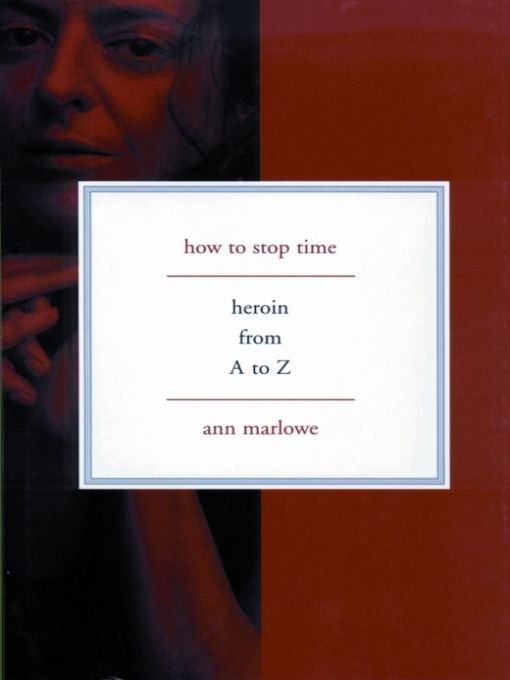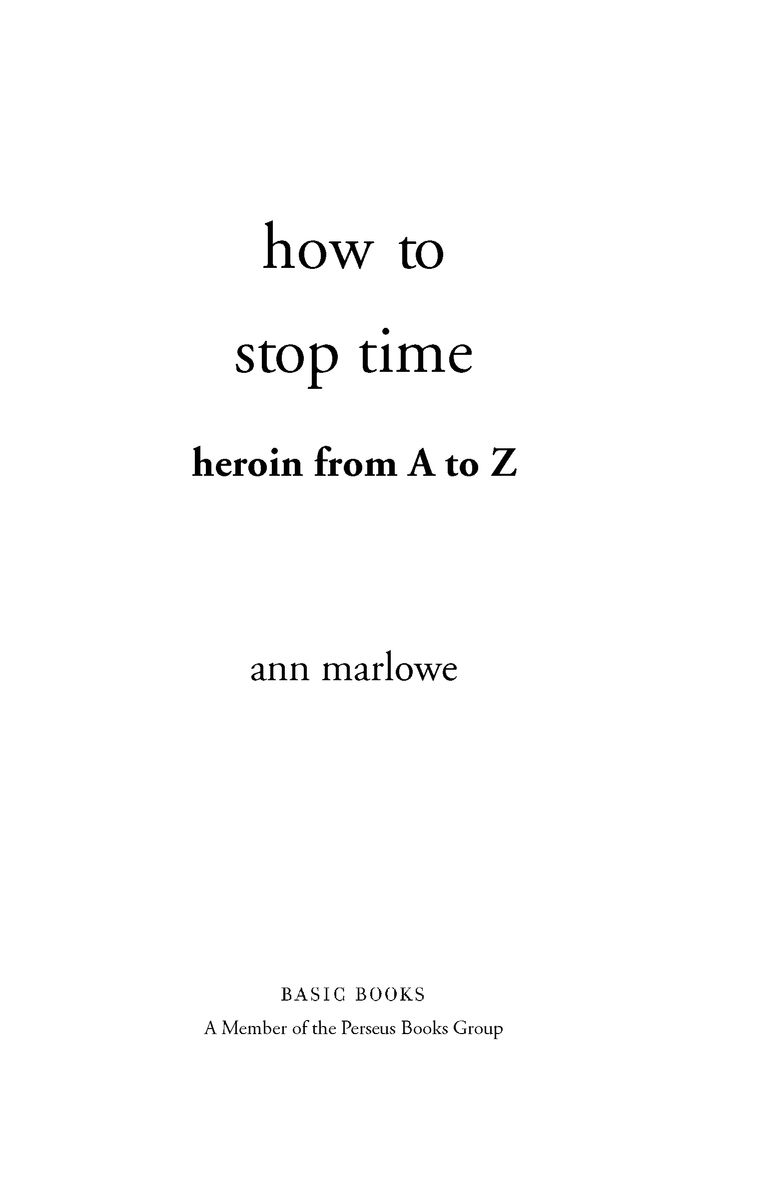Table of Contents
For my mother, and the memory of my father
acknowledgments
Without my friendships with Scott, Christina, Skat, Kirsten, Norman, Tim and B. H., this book would not have been written. Without Liz Ziemska, my agent, it would not have been sold. Lizs cheer, humor and wisdom continue to sustain me; I owe Silvana Paternostro this happy introduction. Don Fehr, my editor at Basic Books, helped me to discover the tone and mood of the book, and was both eloquent in his support on dark days and exacting where he needed to be. Lennie Goodings, my editor at Virago in London, provided invaluable guidance with structure and pacing. Further back, thanks to Lisa Kennedy, who edited my cover story on heroin at The Village Voice, and to Evan Eisenberg, who brought my writing to the Voice and offered sage advice at many stages along the way. Those of my mentors at Harvard who thought they were training a future philosophy professor must have expected an earlier and a different book. Any disappointments I have caused are my own, but any praise must be shared with Stanley Cavell, Robert Nozick and Martha Nussbaum (now at the University of Chicago Law School).
I wish that Sean had lived to read this, and to write the books he had in him.
a
When I was six or seven, a Chanukah gift for me arrived in the mail. The slender brown paperwrapped box was from my aunt Ruth, who lived in Manhattan and always sent me fun presents, so I tore off the paper as fast as I could. Inside was a white B. Altman box. Oh no. Id told my parents I wanted a bow and arrow, a really good jump rope, and a Slinky, but this was probably clothes. Boring. Reluctantly, I opened the cardboard container.
Inside was a white crewneck sweater, with a red A embroidered directly in the center of the chest, underneath the neckline. This wasnt going anywhere near school. I got teased enough for the frumpy clothes my mother bought me, but this was really bad. I didnt even like the colors: white was icky. And Aunt Ruth knew my favorite color was blue, my second favorite greenwhy did she get me a red initial?
abstention
I roll the empty ice-cream spoon around in my mouth. You dont have to take the finish off, my mother tells me. Put that back in the dish. Its close to your bedtime anyway. We are eating butterscotch ice cream by the light of a mosquito candle in the full dark of our backyard. My little brother, just four, is asleep in his room. Since I turned ten, my bedtime is nine thirty, instead of nine, and I guess that I have a half hour to go.
It is very quiet; there is no through traffic on our suburban New Jersey street, and the houses are on lots of an acre or more. Our three lawn chairs are on the octagonal patio in the center of our backyard lawn, where the cultivated and the wild have fought to a draw. The lawn is marshy, and the woods that ring it on three sides encroach each spring in the form of hundreds of tree seedlings I must pluck out as they appear. On the fourth side of the lawn the dark bulk of our house rises, lit only by the ceiling light in the kitchen and one lamp in the family room.
I stay still, hoping that if my parents forget about my presence they will talk about secret, adult things. Dad, olive-skinned and handsome, with closely cropped black hair already flecked with grayhe is, after all, fortyonewears baggy chino shorts, a madras shirt, socks and sandals. Mom, a little taller, paler, short-haired, pleasant looking in her words, is in a short-sleeved man-tailored yellow blouse, her favorite color, a blue cotton skirt that falls below her knees, stockings (despite the heat) and sober brown lace-ups. The stockings are for her varicose veins, the shoes for her flat feet, the blouse to conceal the tissue missing from her neck since she had half of her cancerous thyroid removed twenty years before.
Instead of feeling sorry for my mothers infirmities, I am appalled by them. Although she suggests that I too will eventually have varicose veins, I hotly deny it. And I hate the shoes she makes me wear, ugly things with support; she insists that I have flat feet like hers. The more she draws attention to her physical imperfections, the more Ieven at tenwant to distance myself from her, to show her that I am strong and athletic and healthy.
I am tall for my agealas, not nowand have small, regular features. The only problem is my hair, a mass of black ringlets at odds both with the straight-haired fashions of the times, and our mainly Anglo-Saxon town. And my clothes, chosen by my mother. Because she thinks fashion is created to manipulate people into spending money needlessly, she wont buy me the expensive trendy clothes I want; because two of her uncles are garment manufacturers and she grew up knowing how to judge fabric, she wont buy the cheap imitations that would please me nearly as much. Instead of the fashionable hot pants I covet, I am wearing an archaic shorts set in a pink and yellow floral print I know is uncool, an outfit Im glad my school friends arent here to see.
At least the sixties have pushed my mom toward greater informality: now, in 1968, I no longer have to wear white gloves and black Maryjanes on special occasions. But why couldnt my father pick my clothes? I loved his old black leather motorcycle jacket hanging in the laundry room closet. Mother says he wore it when he courted her, and he drove a little MG convertible. It was so small, she laughs when she remembers. But it sounds a lot more fun than the two Rambler station wagons he chose for us. Washed-out red (1964) and hospital green (1965), they were inexpensive and highly rated, Ive been told, by Consumer Reports. When I ask why my friends parents have more glamorous cars, I am told they are pretentious, and buy their cars on credit. My parents buy theirs for cash, and advise me to do the same when I grow up.
The crickets and frogs make a rough music in the background of my parents voices. You cant see any other houses from the back of the house; my parents have told me we are lucky to have one-acre zoning in our town. This is also why it is safe for me to walk around the neighborhood by myself, or even to school a mile away. My parents talk a lot about safety, but tonight the conversation is duller, revolving around repairs to the washing machine. The talk doesnt interest me until I hear the names of our next-door neighbors, the Van Eingens, whose little girl and I ride our bikes up and down the street together. I could see them sitting on their patio when I followed my parents out the laundry room door to the backyard a half hour ago.
... Must have a drinking problem, my mother is saying. Theyve been out there at least since I brought the steak out to you at the grill, and I saw they had several beer bottles on the table then. They have people over a lot, my father offers. They dont have educated voices, my mother notes. I dont believe either of them went to college. But he must be doing well, my father counters, he mentioned he was buying a Lincoln. Probably on credit, my mother responds.
My parents didnt demonize drinking; it was just one of those things, like golf, or buying showy cars, that they thought beneath people of their intelligence and good education. Both of them had been to graduate school and studied science and knew, for instance, that golf provided little exercise, that many expensive cars were poorly engineered, that buying on credit was cost-ineffective, and that alcohol injured your health, made you say stupid things and increased your chances of injuring yourself in freak accidents. I knew our Ramblers were practical, but I had much more fun riding in the cars of my parents friends, showy automobiles that are beloved collectors items today.


